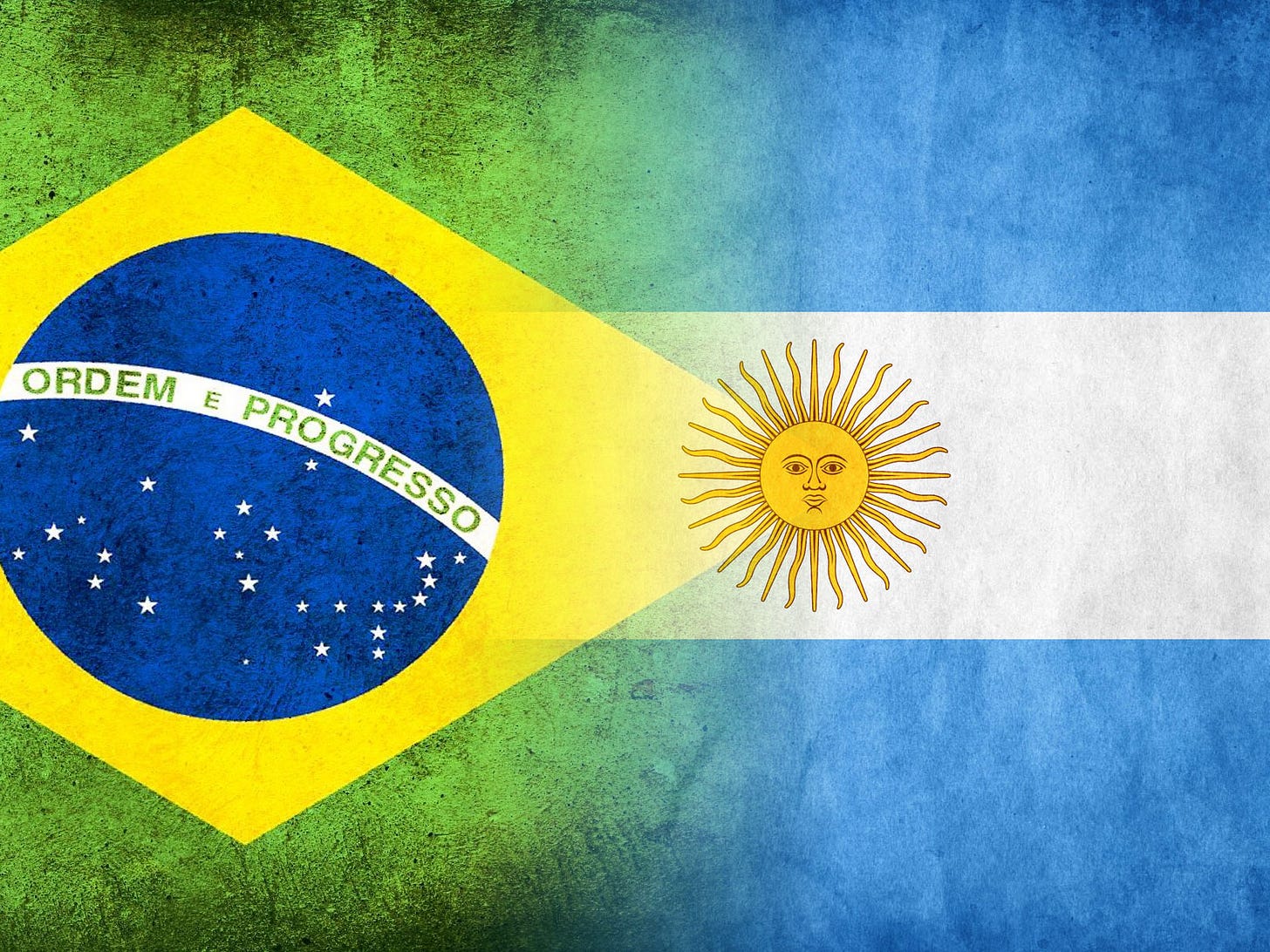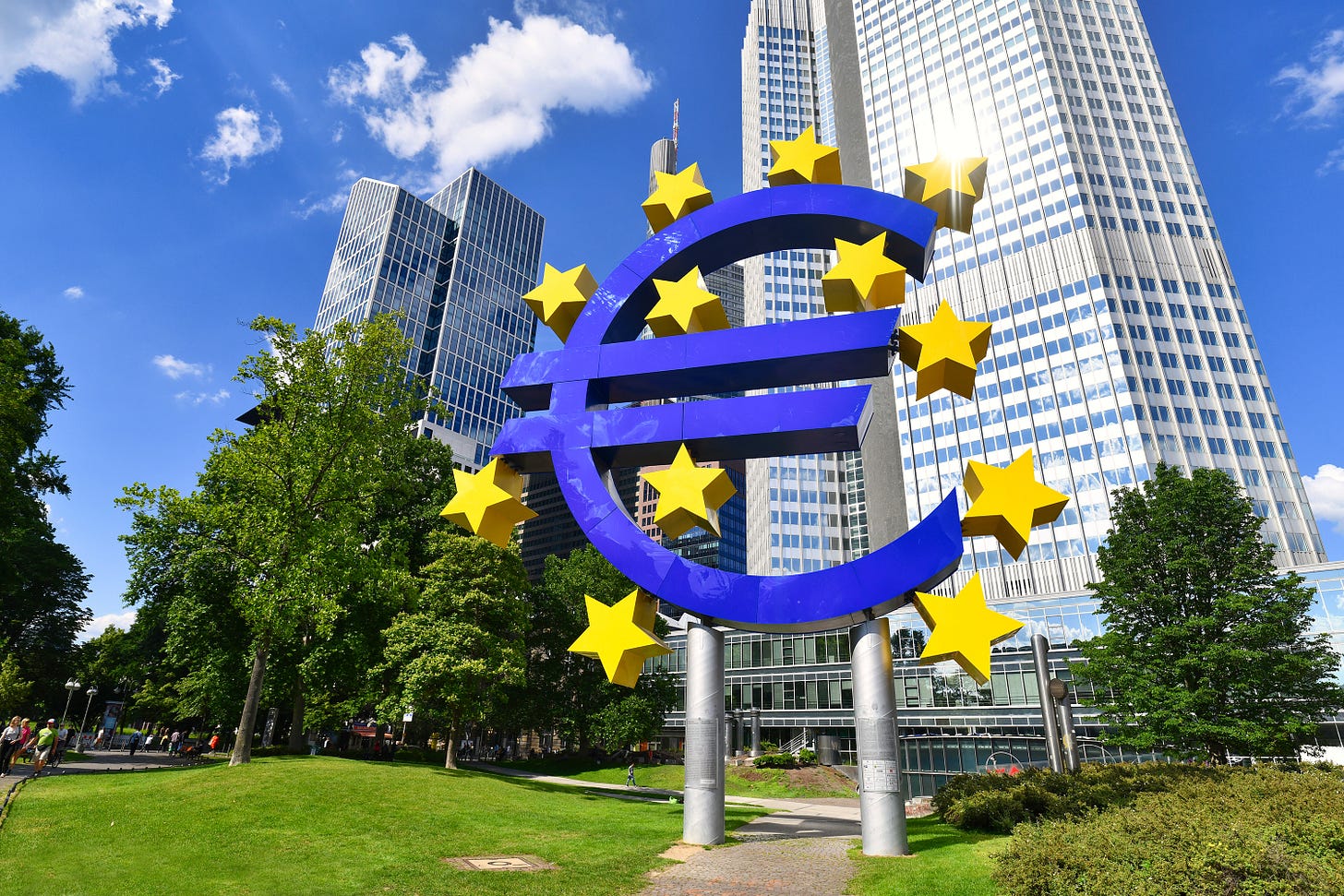Emerging Markets Monitor - January 23
India Is New Growth Engine: Analysts, China Reopening Boosts EM, Brazil-Argentina Common Currency?, Africa to Hit 4% Growth in '23, Eurozone To Avoid Recession
The Top 5 Stories Shaping Emerging Markets from Global Media - January 23
India Stepping Up as New Global Growth Engine
Bloomberg
“India’s economic transformation is kicking into high gear.”
“Global manufacturers are looking beyond China, with Prime Minister Narendra Modi stepping up to seize the moment. The government is spending nearly 20% of its budget this fiscal year on capital investments, the most in at least a decade.”
“Modi is closer than any predecessor to being able to claim that the nation — which may have just passed China as the world’s most populous — is finally meeting its economic potential. To get there, he’ll have to wrestle with the drawbacks of its exceptional scale: the remnants of the red tape and corruption that has slowed India’s rise, and the stark inequality that defines the democracy of 1.4 billion people.”
“‘India is on the cusp of huge change,’ said Nandan Nilekani, a founder of Infosys Ltd., one of the nation’s largest technology services companies. India has quickly created capacity to support tens of thousands of startups, a few billion smartphones and data rates that rank among the lowest in the world, he said.”
“US-China rivalry is providing a tailwind. India and Vietnam will be the big beneficiaries as companies move toward a ‘China-plus-one’ strategy, supply-chain analysts say. Apple Inc.’s three key Taiwanese suppliers have won incentives from Modi’s government to boost smartphone production and exports. Shipments more than doubled to top $2.5 billion of iPhones from April through December.”
“As powerhouses from China to Germany contend with slowing growth, the stakes are rising to find another nation equipped to propel the global economy. Morgan Stanley predicts that India will drive a fifth of world expansion this decade, positioning the nation as one of only three that can generate more than $400 billion in annual output growth.” Bloomberg reports.
China Reopening Spurs Record Inflows into EM Funds
Reuters
“Investors poured a record $12.7 billion into emerging-market debt and equity funds in the week to Wednesday, in response to China's easing of its COVID-19 restrictions on activity, data on Friday from BofA Global Research showed.”
“The sudden shift in Chinese policy has boosted many different asset classes, from commodities and mining stocks to currencies and equity markets in popular tourist destinations.”
“Hong Kong's share benchmark, the Hang Seng Index closed on Friday at an over six-month high ahead of the Lunar New Year Holiday. Chinese onshore blue chips went into the break at a five-month peak.”
“The BofA data also showed weekly flows of $14.4 billion into bond funds, $7.5 billion into equities, $0.6 billion into cash and $0.6 billion from gold. European equities witnessed their first weekly inflow in almost a year. BofA said there were $0.2 billion of inflows to European stock funds, the first inflows in 49 weeks.” Reuters reports.
Brazil and Argentina Discuss Common Currency
Pymnts.com
“The two biggest economies in South America are reportedly working on a common currency.”
“Brazil and Argentina will announce the project this week, the Financial Times (FT) reported Saturday (Jan. 21), noting that the move could someday create the second-biggest currency bloc on the planet.”
“‘There will be . . . a decision to start studying the parameters needed for a common currency, which includes everything from fiscal issues to the size of the economy and the role of central banks,’ Argentina’s economy minister Sergio Massa told the FT.”
“‘It would be a study of mechanisms for trade integration,’ Massa added. ‘I don’t want to create any false expectations . . . it’s the first step on a long road which Latin America must travel.’”
“Massa also noted the effort could take years, telling the FT the euro took 35 years to launch.”
“The two countries are set to discuss the plan this week at a summit in Buenos Ares and will invite other countries in Latin America to take part. Officials said the project will initially focus on how a new currency — Brazil recommends naming it the ‘sur’ for south — could increase trade in the region and reduce dependence on the dollar.”
“The FT estimates that a currency union encompassing all of Latin America would represent 5% of worldwide gross domestic product (GDP), compared to the 14% represented by the euro, the largest currency union in the world.” PYMNTS.com reports.
Africa to Grow 4% in 2023, Development Bank Says
African Business
“The African Development Bank predicts the continent’s growth will be a stronger-than-expected 4% this year, with China’s ending of strict Covid-19 curbs one of the major contributory factors highlighted in its 2023 Africa’s Macroeconomic Performance and Outlook report.”
“‘Despite the confluence of multiple shocks, growth across all five African regions was positive in 2022- and the outlook for 2023–24 is projected to be stable,’ AfDB chief economist Kevin Chika Urama said at the report’s launch.”
“The report says that Africa’s GDP slowed to 3.8% in 2022 from 4.8% in 2021, and Urama predicts it will stabilise at 4% over 2023–24, with a risk of a continent-wide recession close to zero.”
“The bank is more positive than the IMF – which announced a 3.7% growth for the continent this year in its Regional Economic Outlook published in October – and has partly based its projections on the expected recovery of China as it begins to re-open after three years of strict Covid-19 policies. Last week, China’s new foreign minister Qin Gang embarked on a five-country African tour to boost ties with some of the continent’s biggest economies, including Egypt and Ethiopia.”
“‘China’s anticipated reopening after three years of zero-Covid policy and the stable growth outlook for Asia could bolster Africa’s growth in the medium term. An important market for Africa’s commodities, Asia accounts for about 40% of the continent’s total merchandise exports,’ the report says.” Leo Komminoth reports.
Eurozone Set to Avoid Recession This Year
Financial Times
“The eurozone will avoid a recession this year according to a widely-watched survey of economists which illustrates the sharp about-turn in global economic sentiment in the past couple of weeks.”
“As recently as last month, analysts surveyed by Consensus Economics were predicting the bloc would plunge into recession this year. But this month’s survey found that they now expect it to log growth of 0.1 per cent over the course of 2023.”
“This is thanks to lower energy prices, bumper government support and the earlier-than-anticipated reopening of the Chinese economy, which is set to boost global demand. The upgrade comes after officials and business leaders at this week’s annual World Economic Forum in Davos also embraced a more upbeat outlook, and the IMF signalled that it would soon upgrade its forecasts for global growth.”
“Economists had feared that Europe would be among the hardest-hit areas of the global economy this year due to its exposure to the economic consequences of Russia’s war with Ukraine. Just weeks ago IMF managing director Kristalina Georgieva said that ‘half of the European Union will be in a recession’ during 2023.”
“Carsten Brzeski, head of macro research at ING Bank, described the about-turn in economists’ forecasts as ‘a recession that never came’. Susannah Streeter, analyst at Hargreaves Lansdown, said: ‘The threat of the feared energy crisis [is] retreating, and inflation [is] climbing down more rapidly than expected.’” The FT reports.
"Courage is resistance to fear, mastery of fear - not absence of fear." - Mark Twain





